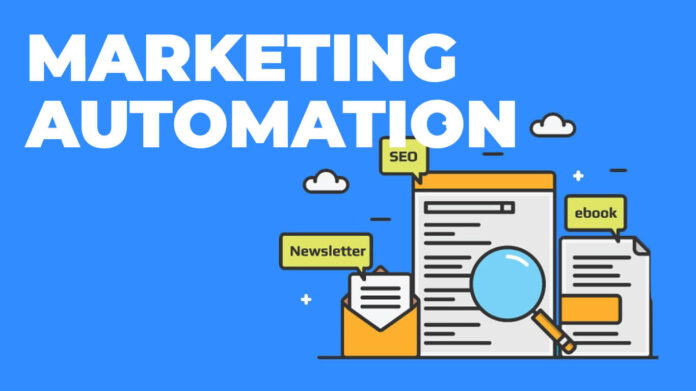Top 10 Best Marketing Automation Companies in India 2023
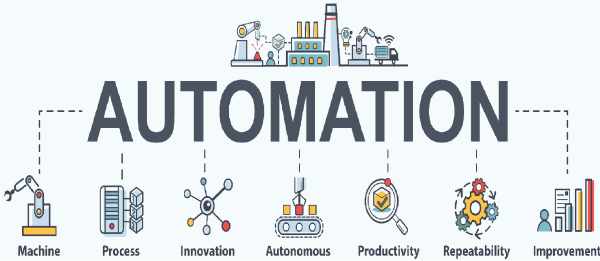
Marketing automation companies are businesses that provide software or tools designed to automate repetitive marketing tasks. The goal is to improve efficiency and precision, enabling marketers to focus more on strategic, creative tasks rather than routine ones.
Such companies typically offer software platforms that include features for things like:
Email Marketing Automation: This might involve scheduling emails, segmenting email lists based on customer behavior or attributes, and managing automated email campaigns.
Customer Relationship Management (CRM): Many marketing automation platforms include or integrate with CRM systems, which allow companies to manage their interactions with current and potential customers.
Social Media Automation: Some platforms allow for scheduling social media posts in advance, tracking social media interactions, and even automating responses or messages.
Lead Generation and Management: This could involve tracking potential customers’ activities on a company’s website, scoring leads based on their likelihood to convert, and nurturing leads through automated messages or content.
Analytics and Reporting: Most platforms include some kind of analytics capability, allowing marketers to measure the success of their campaigns and gain insights into customer behavior.
Some well-known marketing automation companies included HubSpot, Salesforce, Marketo (part of Adobe), Mailchimp, Pardot (a Salesforce company), Oracle Marketing Cloud, and ActiveCampaign. It’s important to note that the marketing automation landscape is rapidly evolving, and new companies and technologies are emerging all the time.
These companies can cater to different sizes and types of businesses, from small businesses to large enterprises, and their services can be especially beneficial for businesses with a significant online presence or e-commerce businesses. Depending on the specific business needs, one might choose different marketing automation tools or platforms.
Why Marketing Automation Companies are important
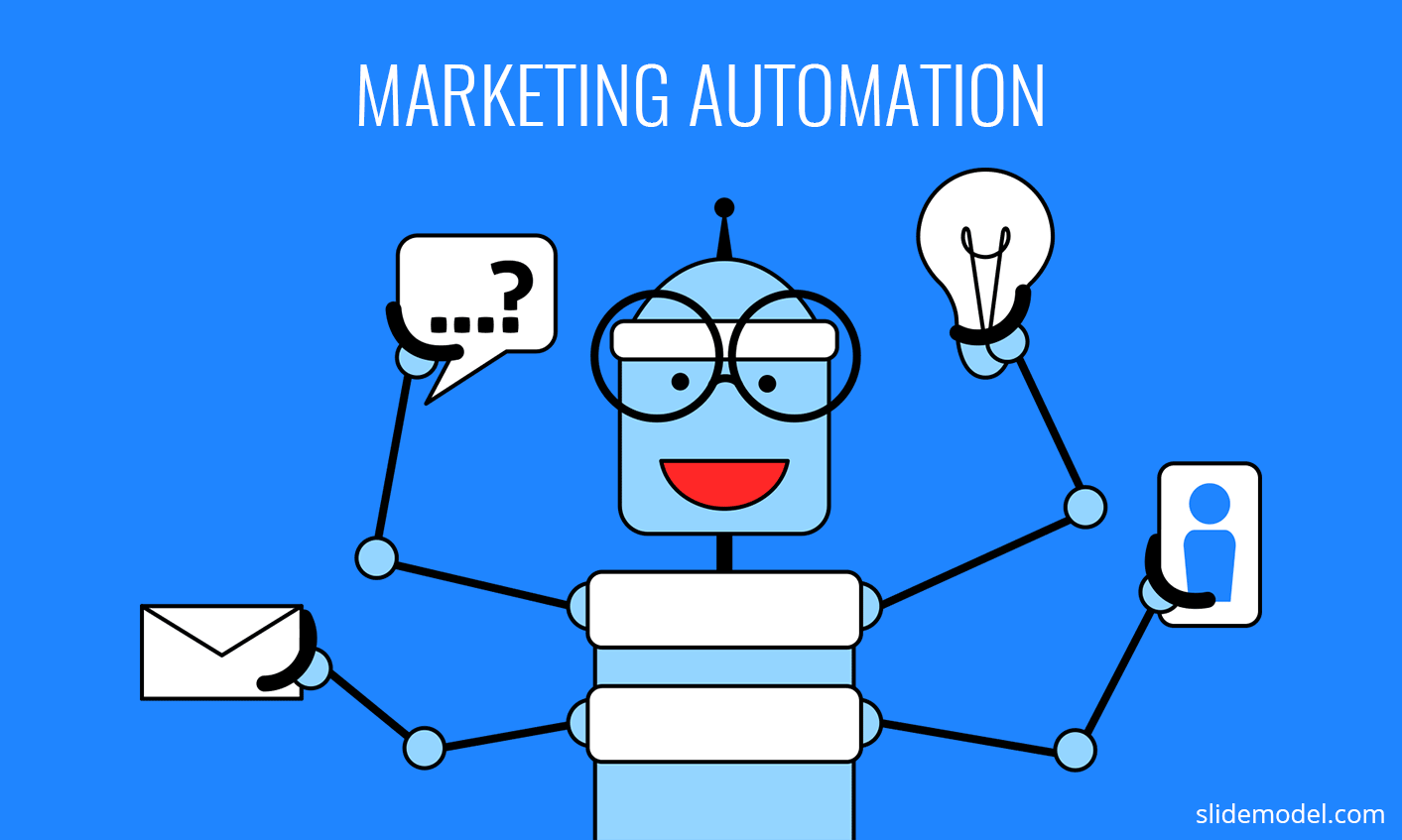
Marketing automation companies are important for several reasons. They play a key role in the marketing strategies of many businesses, from small startups to multinational corporations. Here are some of the reasons why they are essential:
Efficiency: Marketing automation tools can perform repetitive tasks more quickly and accurately than humans. This efficiency frees up time for marketers to focus on strategic and creative tasks.
Personalization: With marketing automation, businesses can personalize their interactions with each customer based on their behavior and preferences. This personalization can lead to more effective marketing and improved customer satisfaction.
Scalability: Small businesses can use marketing automation tools to handle marketing tasks that would be impossible to manage manually as their customer base grows. The ability to scale marketing efforts with the growth of the business is a major advantage of marketing automation.
Data Collection and Analysis: Marketing automation tools often include powerful analytics capabilities. They can track customer behavior across different channels and over time, giving marketers a wealth of data to guide their decisions.
Lead Management: Marketing automation companies provide tools that help businesses manage their leads effectively. This could involve identifying potential customers, scoring them based on their likelihood to convert, and nurturing them through the sales funnel with targeted content.
Improved Customer Experience: Automated follow-ups, reminders, personalized messages, etc., lead to an improved customer experience, which can enhance customer loyalty and retention.
ROI Tracking: Automation tools often come with analytics and reporting features that allow marketers to track the return on investment (ROI) of their campaigns. This data can help marketers make more informed decisions and improve their strategies.
Multi-Channel Management: Marketing automation tools make it easier for businesses to manage and coordinate their marketing efforts across multiple channels, including email, social media, web, and more.
History of Marketing Automation Companies in India
The history of marketing automation in India is similar to its evolution globally but with specific characteristics driven by the region’s unique market dynamics. Let’s look at how this has unfolded over time:
Late 1990s to Early 2000s: During this period, the internet and digital marketing began to gain momentum in India. Many businesses started developing their websites and initiating digital marketing efforts. Although marketing automation as we know it today was not widely used during this time, this era laid the groundwork for what was to come.
The mid-2000s to Early 2010s: As internet penetration increased in India, businesses began to realize the potential of online marketing. During this period, email marketing was a dominant digital marketing channel. Companies started to automate their email campaigns, which marked the beginning of marketing automation in India. However, the tools were mostly used by large enterprises, as they were expensive and required specialized skills to operate.
The mid-2010s to 2020s: With the advent of more sophisticated technologies, marketing automation platforms began to incorporate a wider range of capabilities, including social media automation, CRM, and analytics. Indian companies such as Zoho, LeadSquared, and Netcore emerged as significant players in the marketing automation space. More affordable and user-friendly solutions started to appear, making marketing automation accessible to small and medium-sized businesses as well.
2020s onwards: By this period, digital marketing had become a crucial part of most businesses’ strategies in India, driven by increased smartphone usage and internet penetration. Marketing automation thus gained more traction as companies sought to personalize their marketing efforts, manage leads more effectively, and make their marketing efforts more efficient. The COVID-19 pandemic also accelerated the digital transformation of businesses, leading to further adoption of marketing automation tools.
Marketing automation continues to evolve in India, with an increasing emphasis on artificial intelligence (AI) and machine learning to enhance capabilities. However, it’s important to note that there may have been further developments in the Indian marketing automation landscape since my training data.
Benefits of Marketing Automation Companies

Marketing automation companies provide a suite of tools and services that offer various benefits for businesses. Here are some of the key benefits:
Increased Efficiency: Marketing automation software performs repetitive tasks automatically, freeing up time for marketers to focus on more strategic and creative tasks.
Improved Customer Segmentation: These tools allow businesses to segment their audience based on specific criteria, such as demographic information, behavior, and preferences, enabling them to target their marketing efforts more effectively.
Personalization: By tracking user behavior and preferences, marketing automation tools enable businesses to personalize their marketing communications, leading to more engaging and effective campaigns.
Multi-Channel Campaign Management: Marketing automation platforms allow marketers to manage and coordinate their efforts across multiple channels, such as email, social media, web, and more, all from one central location.
Data Analysis: Many marketing automation tools include powerful analytics capabilities, enabling businesses to track the success of their campaigns, understand customer behavior, and make data-driven decisions.
Lead Management: From identifying potential customers to nurturing them through the sales funnel, marketing automation tools can streamline and enhance the entire lead management process.
Scalability: As your business grows, the volume of marketing tasks can also increase. Marketing automation tools can scale with your business, handling an increasing volume of tasks without requiring more human resources.
Improved ROI: By automating repetitive tasks, targeting efforts more effectively, and providing robust analytics, marketing automation can help businesses improve the return on investment (ROI) of their marketing campaigns.
Consistent Customer Experience: By managing all channels and customer interactions from one platform, marketing automation helps ensure a consistent, high-quality customer experience.
Marketing Automation Companies in India
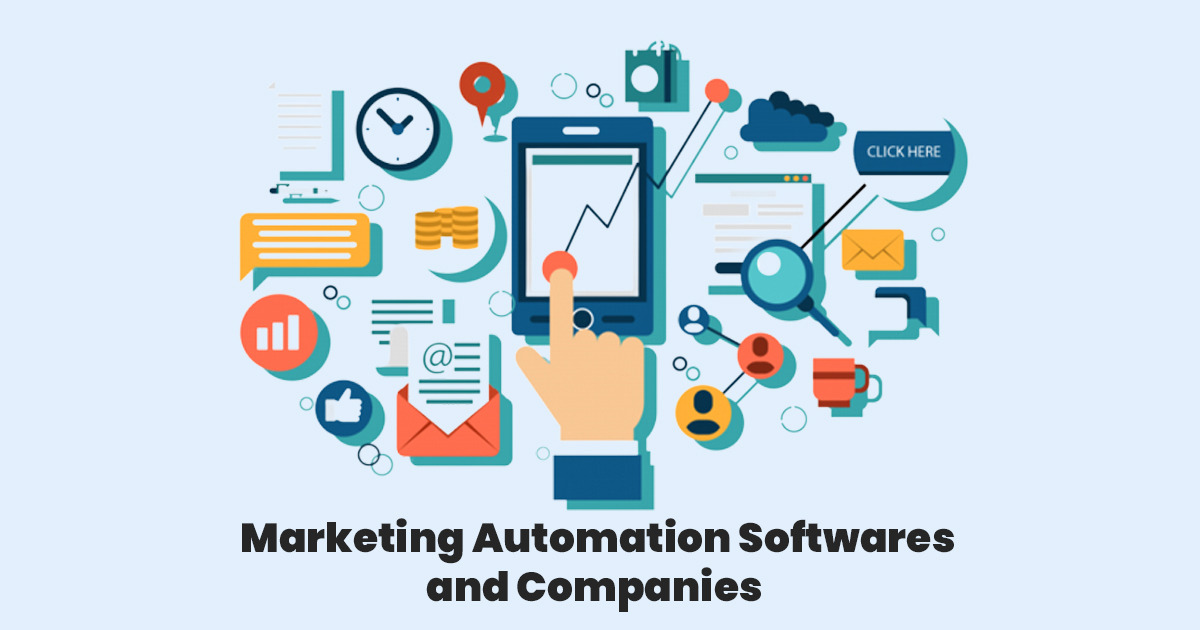
Zoho
HubSpot
Netcore
LeadSquared
MoEngage
WebEngage
CleverTap
Sendinblue
ActiveCampaign
Pardot
Zoho
Zoho Corporation is an Indian software development company that provides a suite of online productivity tools and SaaS applications. Their products are designed for businesses of all sizes, providing tools for a wide range of business functions.
One of their offerings is Zoho Marketing Automation, an all-in-one software that helps businesses attract, retain, and engage customers. It’s part of Zoho’s suite of applications and integrates well with their other products, allowing for a streamlined and coordinated approach to business and marketing tasks.
Multichannel Marketing: Zoho allows you to manage your marketing efforts across multiple channels, including email, social media, SMS, and more, all from one platform.
Email Marketing: Zoho provides tools for creating, sending, and tracking email marketing campaigns. Features include a drag-and-drop editor, customizable templates, and advanced analytics.
Marketing Journeys: This feature enables you to design customer journey maps to guide prospects from the initial point of contact through the various stages of the customer lifecycle.
Behavioral Targeting: Zoho’s tools let you track customer behavior on your website, in your app, and in response to your marketing efforts. This information can be used to segment your audience and target your marketing more effectively.
CRM Integration: Zoho Marketing Automation integrates seamlessly with Zoho CRM, allowing you to manage your customer relationships and your marketing efforts from a single platform.
Webinar Marketing: You can promote webinars, track registrations, and engage attendees using Zoho’s webinar marketing tools.
Social Media Marketing: Zoho allows you to schedule posts, monitor social media mentions, and manage your social media presence from one platform.
Analytics and Reporting: Zoho provides robust analytics tools that let you measure the success of your marketing efforts and gain insights into customer behavior.
HubSpot

HubSpot is a leading provider of marketing, sales, customer service, and CRM (Customer Relationship Management) software. It’s headquartered in Cambridge, Massachusetts, and serves businesses of all sizes across the globe.
HubSpot’s Marketing Hub is a powerful marketing automation platform with a suite of tools designed to attract, engage, and delight customers.
Email Marketing: HubSpot offers a robust email marketing platform with a drag-and-drop editor for easy creation of professional emails. You can personalize email content, automate email campaigns, and monitor their performance.
Lead Generation: HubSpot provides tools to help you attract and convert leads, including SEO tools, content creation tools, and conversion tools like forms, CTAs, and lead flows.
Marketing Automation: This is at the core of HubSpot’s offerings. You can build automated workflows based on specific criteria to streamline and scale your marketing efforts.
CRM Integration: HubSpot’s marketing automation platform is fully integrated with its free CRM system. This allows you to track customer interactions across all touchpoints and personalize your marketing based on comprehensive customer data.
Landing Pages: You can create and test beautiful landing pages that are optimized for conversions.
Analytics and Reporting: HubSpot offers detailed analytics on all your marketing campaigns. You can analyze your marketing performance and get insights into what’s working and what’s not.
Social Media Management: HubSpot allows you to manage your social media campaigns, monitor social conversations, and measure the effectiveness of your social media marketing.
Ads Management: With HubSpot, you can create, measure, and optimize Facebook, Google, and LinkedIn ads.
Content Strategy and SEO: Tools for planning and optimizing website content for search engines are also part of HubSpot’s offering.
Netcore
Netcore is a global Martech product company that provides AI-powered growth and marketing automation solutions to businesses. The company was founded in 1997 and is headquartered in Mumbai, India, but it has a global presence, serving businesses in various industries across the world.
Netcore’s marketing automation platform offers the following key features:
Multi-Channel Marketing: Netcore supports a variety of communication channels, including email, SMS, web, app, and WhatsApp. This helps businesses to coordinate and optimize their marketing efforts across all these channels.
Customer Journey Mapping: Netcore’s platform allows businesses to create and visualize customer journeys, enabling them to provide a more personalized and engaging customer experience.
AI-Powered Personalization: Netcore uses AI and machine learning to personalize marketing communications based on customer behavior and preferences.
Email Marketing: Businesses can use Netcore to create, send, and track email marketing campaigns. The platform offers a range of email marketing features, including automation, segmentation, and analytics.
Push Notifications: Netcore provides tools for sending push notifications to customers on their mobile devices or browsers, which can help businesses to engage customers and drive conversions.
SMS Marketing: Businesses can use Netcore to send personalized SMS messages to their customers, either individually or in bulk.
Analytics and Reporting: Netcore offers robust analytics tools that allow businesses to track the performance of their marketing campaigns and gain insights into customer behavior.
CRM Integration: Netcore can be integrated with a variety of CRM systems, enabling businesses to synchronize their marketing and customer relationship management efforts.
LeadSquared

LeadSquared is a leading customer acquisition and engagement automation solution provider. Founded in 2011 and headquartered in Bengaluru, India, the company serves a wide range of industries across the globe, including education, financial services, healthcare, and real estate.
LeadSquared’s platform is designed to streamline the sales and marketing processes, increase lead conversion, and improve overall business efficiency.
LeadSquared’s marketing automation solution offers the following key features:
Marketing Automation: LeadSquared provides a comprehensive set of tools to automate marketing tasks such as email campaigns, social media posting, and SMS marketing, among others.
Lead Scoring: The platform offers automated lead scoring, helping businesses identify their most promising leads based on a variety of factors like engagement level, lead source, and more.
Landing Pages: LeadSquared includes tools for creating effective landing pages with easy-to-use templates and a drag-and-drop builder. These landing pages can then be tested and optimized for better conversion rates.
Email Marketing: With LeadSquared, businesses can design, schedule, and track email campaigns. It also provides detailed analytics about email performance.
Sales Funnel: The platform provides a visual sales funnel that lets you track leads from acquisition to conversion.
CRM Integration: LeadSquared can be integrated with other CRM systems, allowing businesses to have a unified view of their customer interactions.
Analytics and Reporting: LeadSquared provides robust analytics and reporting capabilities that provide insights into campaign performance, lead behavior, and more.
Mobile CRM: LeadSquared offers a mobile CRM that lets sales teams manage leads, track their activities, and close deals from anywhere.
MoEngage
MoEngage is an intelligent marketing cloud designed for the mobile-first world, founded in 2014 and headquartered in San Francisco, California, with an office in Bengaluru, India. It’s built to deliver personalized interactions via multiple channels, including email, mobile push notifications, in-app messaging, web push notifications, and SMS.
Some of the key features of MoEngage include:
Segmentation: MoEngage provides dynamic segmentation that allows businesses to categorize users based on behavior, location, device, lifecycle stage, and more.
Omnichannel Automation: MoEngage lets businesses automate campaigns across several channels, such as in-app messaging, push notifications, emails, and SMS, to create a consistent and engaging customer experience.
Personalization: With its AI-based capabilities, MoEngage enables businesses to provide a personalized experience to users based on their past behavior, preferences, and user attributes.
Analytics and Reporting: MoEngage offers comprehensive analytics that let businesses measure and analyze campaign performance and user behavior, providing insights that can help drive more effective marketing strategies.
Flows: This feature allows marketers to create visual customer journey maps, enabling them to identify and target key touchpoints in the customer journey.
Push Amplification: This unique feature helps improve delivery rates of push notifications, particularly for users in regions where delivery issues are prevalent.
Sherpa: MoEngage’s proprietary AI engine, Sherpa, can predict the best time to send messages to users to optimize for higher engagement.
Integrations: MoEngage can be integrated with various other tools and platforms, providing businesses with a seamless marketing automation experience.
WebEngage

WebEngage is a full-stack marketing automation and customer data platform that was founded in 2011. It’s headquartered in Mumbai, India, and caters to a diverse range of industries worldwide, including e-commerce, tech, financial services, healthcare, media and entertainment, and travel and hospitality.
WebEngage offers a variety of features:
User Segmentation: WebEngage provides advanced user segmentation capabilities, allowing businesses to group their users based on demographics, behavior, and other attributes.
Omnichannel Engagement: The platform supports a variety of engagement channels, including email, in-app messages, push notifications, SMS, web push, and WhatsApp, enabling businesses to reach their users wherever they are.
Journey Designer: WebEngage’s drag-and-drop journey designer allows marketers to create complex lifecycle marketing campaigns that span across multiple channels and touchpoints.
Personalization: With its personalization capabilities, businesses can tailor their messages to individual users based on their behavior, preferences, and user attributes.
Analytics and Reporting: WebEngage provides comprehensive analytics and reporting that help businesses measure and optimize their marketing campaigns.
Integrations: The platform can be seamlessly integrated with a host of other systems and platforms, including CRM systems, data management platforms, and more.
Retention Marketing: WebEngage allows businesses to build targeted campaigns aimed at improving user retention and reducing churn.
A/B Testing: The platform offers A/B testing capabilities, allowing businesses to test different versions of their campaigns to see which performs better.
CleverTap
CleverTap is a customer retention platform that combines analytics with engagement, helping brands maximize user lifetime value. The company was founded in 2013, and while it is headquartered in Mountain View, California, it also has a strong presence in India. CleverTap serves a wide variety of industries, including e-commerce, travel, entertainment, and food and beverages.
Behavioral Analytics: CleverTap offers real-time behavioral analytics, allowing businesses to understand and predict user behavior.
Segmentation: CleverTap’s platform includes powerful segmentation capabilities that allow businesses to group users based on behavior, location, and attributes.
Omnichannel Engagement: CleverTap supports multiple channels of engagement, including email, in-app messages, push notifications, web push, SMS, and more.
Personalization: The platform allows businesses to create personalized messages and experiences based on user behavior, demographics, and preferences.
Customer Journey Mapping: CleverTap’s user journey functionality allows marketers to visualize and analyze the customer journey and design targeted marketing campaigns.
Automated Campaigns: CleverTap offers a range of automation tools, allowing businesses to automate their marketing campaigns based on user behavior and other triggers.
A/B Testing: The platform allows marketers to run A/B tests on their campaigns to optimize performance.
Integrations: CleverTap can be integrated with a variety of other platforms and tools, including analytics tools, CRM systems, and data platforms.
Sendinblue

Sendinblue is a digital marketing platform founded in 2007, providing a comprehensive suite of tools including email marketing, SMS marketing, chat, CRM, and more. Headquartered in Paris, France, Sendinblue serves over 80,000 businesses around the world.
Some of the key features of Sendinblue include:
Email Marketing: Sendinblue offers a robust email marketing platform with features such as a drag-and-drop email editor, customizable templates, and advanced email analytics.
SMS Marketing: With Sendinblue, businesses can run targeted SMS marketing campaigns and monitor their results.
Chat: The platform provides a chat feature that can be integrated into your website, allowing you to connect with your visitors in real-time.
CRM: Sendinblue includes a built-in CRM that helps you organize your contacts, track your interactions with them, and manage your sales pipeline.
Marketing Automation: Sendinblue allows you to automate your marketing processes based on a variety of triggers, helping you save time and improve efficiency. You can design custom workflows for things like welcome emails, retargeting campaigns, and more.
Transaction Emails: Sendinblue lets you design, send, and track transactional emails, which are messages triggered by specific actions like order confirmations, password resets, and account notifications.
Segmentation: The platform provides advanced segmentation capabilities, letting you group your contacts based on their behavior, preferences, and other criteria.
Landing Pages: You can create and customize landing pages to drive conversions, collect leads, and promote your products or services.
A/B Testing: Sendinblue allows you to test different versions of your emails to see which ones perform better.
Integrations: Sendinblue can be integrated with a variety of other tools and platforms, such as WordPress, Shopify, Google Analytics, and more.
ActiveCampaign
ActiveCampaign is a comprehensive marketing platform that offers email marketing, marketing automation, sales automation, and CRM tools. The company was founded in 2003 and is headquartered in Chicago, Illinois.
Here are some key features offered by ActiveCampaign:
Email Marketing: ActiveCampaign offers a suite of email marketing tools, including a drag-and-drop email designer, email segmentation, dynamic content, and A/B testing.
Marketing Automation: With ActiveCampaign, you can automate your marketing communication across the customer journey with features such as site tracking, event tracking, automation goals, and attribution.
Sales & CRM: ActiveCampaign offers a built-in CRM system to manage and nurture leads. It enables you to automate the sales process with features like contact and lead scoring and sales automation workflows.
Messaging: It supports multiple messaging options, including email, SMS, chat, and more.
Machine Learning: ActiveCampaign leverages machine learning to provide predictive sending, predictive content, and win probability.
Segmentation & Personalization: ActiveCampaign offers tools for deep segmentation and personalization to ensure your messages are targeted and relevant to each contact.
Analytics & Reporting: The platform provides comprehensive reporting features, including campaign, automation, sales, and conversion reports.
Integrations: ActiveCampaign can integrate with over 850 apps, including popular ones like Shopify, WordPress, and Zapier, allowing you to connect it with the other tools your business relies on.
Pardot
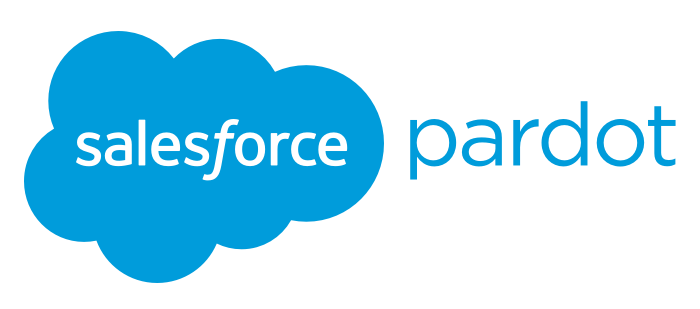
Pardot is a business-to-business (B2B) marketing automation solution by Salesforce. Founded in 2007 and later acquired by Salesforce in 2013, Pardot has become a significant part of the Salesforce ecosystem, offering a suite of tools to manage long-term marketing efforts such as lead generation, lead nurturing, email marketing, and sales alignment.
Here are some key features offered by Pardot:
Lead Management: Pardot provides robust lead management capabilities, including lead scoring, grading, nurturing, and prospect tracking.
Email Marketing: Pardot offers comprehensive email marketing tools such as email builders, personalization, A/B testing, and advanced email analytics.
Sales Alignment: Pardot can connect with Salesforce CRM to provide real-time alerts to sales reps when their prospects are active, helping to align sales and marketing efforts for maximum efficiency.
Personalization and Dynamic Content: Using Pardot, you can personalize various marketing assets based on the prospect’s behavior and other parameters. It also offers dynamic content that can change based on who’s viewing it.
Marketing Automation: Pardot provides advanced automation features, including visual workflow builders and the ability to automate multi-step processes based on triggers and actions.
Social Media Marketing: Pardot allows you to schedule and track social posts, connect with prospects on social platforms, and measure the impact of your social media efforts.
ROI Reporting: Pardot provides closed-loop reporting, enabling you to track a prospect’s lifecycle from the point of becoming a lead, through the nurturing process, to becoming a customer.
Integrations: Being a part of Salesforce, Pardot integrates seamlessly with other Salesforce offerings and various third-party apps, improving data sharing and team collaboration.

